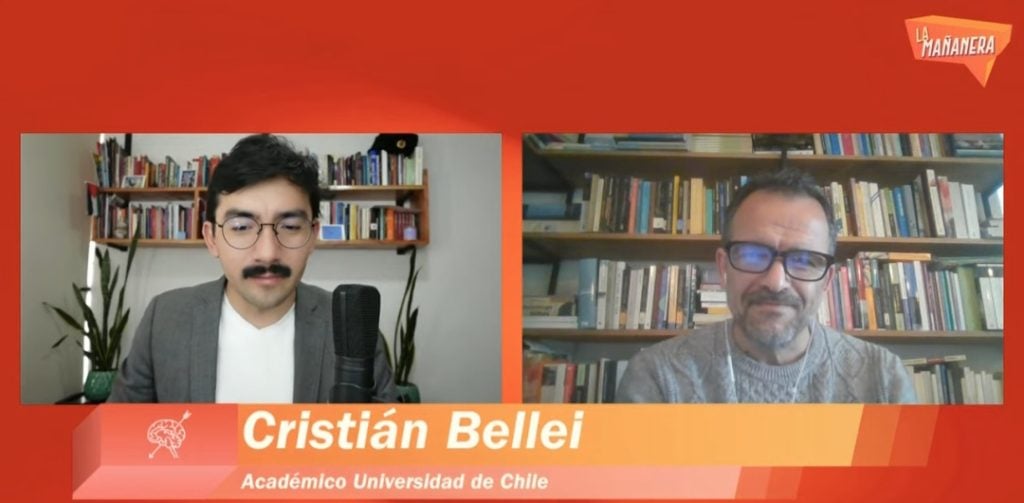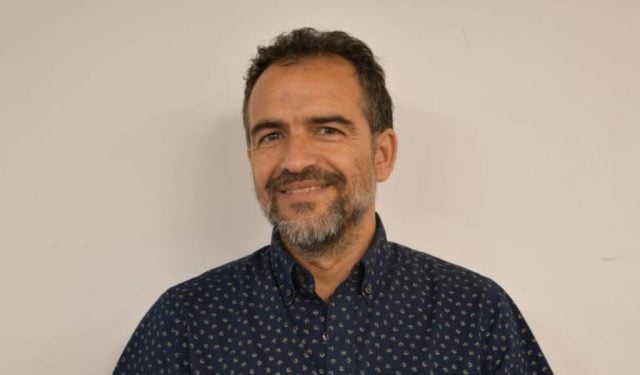Original article: Cristián Bellei, experto en educación: “No hay que saltar a Finlandia: la escuela del frente puede que ya lo sepa”
Education expert Cristián Bellei urged the replication of effective «best practices» already being implemented in Chilean schools, emphasizing the importance of mutual learning.
In an interview on the program La Mañanera, hosted by Director Javier Pineda Olcay from El Ciudadano, the sociologist, who holds a master’s and doctorate in Education from Harvard University, discussed his newly published book, «The Problem of Education in Chile,» which summarizes two decades of research findings aimed at a broader audience.
«The goal is to engage in a social conversation about education beyond just specialists, especially since this is an election year. Education is a crucial issue for families, society, and organized groups, as well as for professionals, teachers, and educators. The central thesis is that Chile has lost its way; while it successfully expanded access to schooling, the actual learning outcomes from this access remain alarmingly low,» he explained.
«The Reform that Municipalized Educational Administration Was Poorly Executed»
As the director of the Advanced Research Center in Education at the University of Chile, Bellei noted that this situation creates difficulties in justifying resources and investment by families and young people, leading to societal disillusionment with the education system. He observed a growing sense of confusion about how to effectively address educational issues.
He further stated that while some educational policies have been well-directed, «the overall institutional framework and organization of the school system have not facilitated effective teaching or efficient policy implementation. Without a fundamental shift in how the system is organized, we risk continuing a trajectory of declining quality, inefficiency, and inequity,» Bellei cautioned.
When asked about the potential of local public education services to resolve existing problems, he revealed that his book includes two chapters focused solely on public education, asserting that the central issue stems from a poorly conceived 1980s reform that municipalized educational administration without gaining public trust.
«Neither teachers nor families have believed in the municipalization. My book presents data showing a consistent lack of faith from families regarding municipal schools. Without trust in municipal management, enrollment will decline, exacerbating system failures as we have already witnessed,» Bellei warned.
In his view, this policy fell short due to a fundamental design that favored private education over public education, complicating the difficulties faced by the public system. He believes that by the early 2000s there was substantial evidence to justify unwinding the municipalization, but political will was slow to respond.
«This delay in dismantling municipalization has worsened the current situation, which we see today in local educational services,» Bellei stated.
He pointed out that local services, as higher institutions, have significant design flaws already diagnosed in the current government’s program. He noted, «President Gabriel Boric has proposed adjustments to the design established during Michelle Bachelet’s administration, correcting some urgent issues but not addressing the institutional rules needed for a more permanent solution. While there are reforms underway in Parliament and budget laws supporting some changes, this remains an urgent issue.”
«In other words, I believe the system has great potential to restore public education if we implement the adjustments I mentioned,» he emphasized.

«There Are Good Practices in Chile»
During the interview, Bellei was asked about the educational priorities needed to navigate the current crisis. He revealed that the final chapter of his book includes a proposal for a 21st-century education program, advocating for a departure from regressive viewpoints that seek to revert reforms to the 1990s.
«We must move forward. Regarding local public education services, we need to make crucial adjustments. The inclusion law is a good one; we cannot revert to profit-driven motives or discriminatory practices. Yes, we recognize problems in the admissions system, but they are not systemic. Targeted tweaks are necessary; that is our priority. We must not regress but rather consolidate institutional reforms for stability… We need a more balanced approach to institutional stability as our first priority—accept the reforms, correct what needs correcting, but do not look back,» he asserted.
Secondly, he emphasized the need to engage directly with classrooms and teachers, evaluating working conditions to implement improvements.
«Once we achieve that, it’s vital to address teacher training and best practices because merely raising salaries or improving working conditions won’t suffice for teachers to excel in teaching civic education. We shouldn’t expect to leap from a system with poor results to one as advanced as Singapore or Finland; it overwhelms teachers with inaccessible standards,» he said.
Bellei also dedicated a chapter in his book to highlighting effective educational practices in areas like Hualañé, Calama, Linares, and San Nicolás, underscoring the importance of fostering collaborative networks where schools can learn from each other.
«We inadequately organize the School Integration Program (PIE). While significant funds are spent on it, schools still lack proper organization. However, some institutions have succeeded; thus, we should learn from them. We can’t expect an expert from Toronto to guide us on how to implement PIE—our neighboring schools may already have the answers. A collaborative system will aid in learning from effective practices. If we implement simply these two measures, we would vastly improve our educational system, probably not to the level of Singapore or Shanghai, but significantly better than our current state,» the academic concluded.
Cristián Bellei: «The Chilean Curriculum Design is Very Pluralistic and Responsible»
Bellei characterized the Chilean curriculum as «advanced,» noting its emphasis on democratic and participatory processes both within the educational sector and in political oversight.
He dismissed allegations of ideological control voiced by some political figures from the right and far-right, stating, «I recently heard a candidate, Johannes Kaiser, discuss ideological control, claiming the Ministry of Education sends inappropriate material to schools; these are mere distractions. Chile has a serious, responsible national design curriculum recognized globally, which is both pluralistic and accountable. This work is extensive and credible,» he affirmed.
Bellei recalled that former education minister Marcela Cubillos attempted to discredit teachers by accusing them of indoctrinating students; however, he noted, «There is no evidence supporting those claims; all such allegations are unfounded. What Chile truly faces is a challenge in teacher capacity to actualize its advanced curriculum.»
During the broadcast this Wednesday, October 29, on La Mañanera, the director also conversed with Dauno Tótoro, a leader of the Revolutionary Workers Party.
You can watch the full program below:

